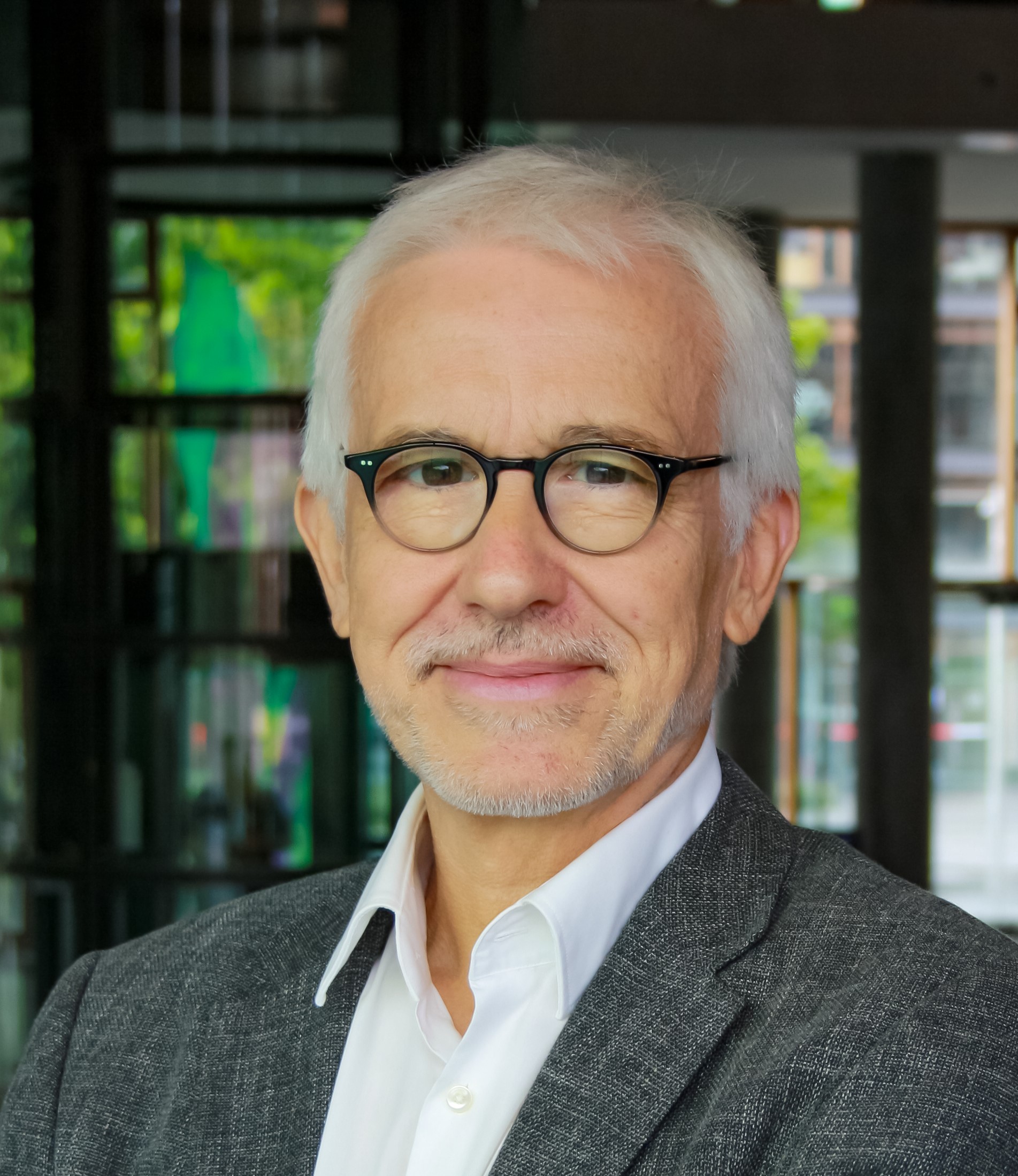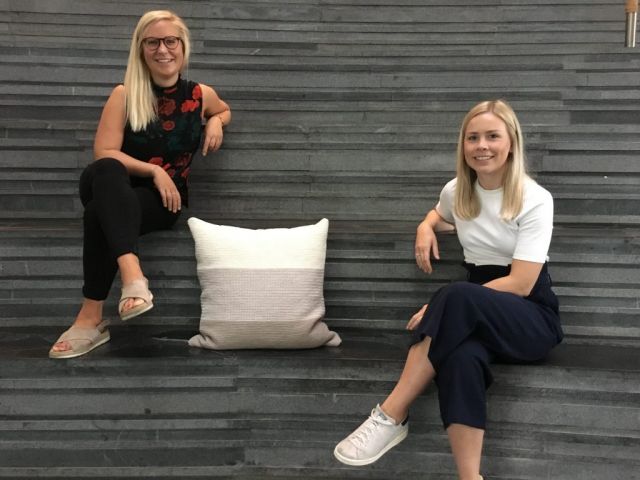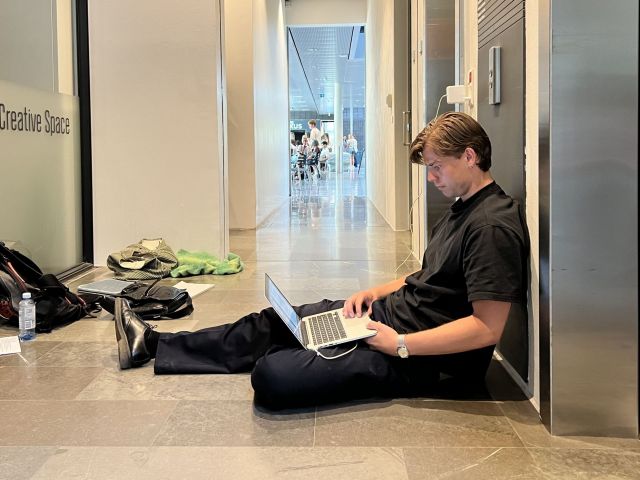Why we see fewer female start-up founders

Photo: Shutterstock
Fewer women find their way as founders in start-ups even at an entrepreneur-friendly university such as CBS. Why? Professor José Mata gives three reasons why even young women might shy away from a career as an entrepreneur. Mindset, lack of female role models and investor bias.
Before CBS student Isabella Agdestein founded her company FocalX with two co-founders, she researched – and then researched some more. Because she was well on her way to a lucrative consulting job but also felt the idea – an AI car scan devised by her co-founder Pritram Bolenwar – was too exciting to pass up.
In the end, she took the leap in August 2021 and has not regretted her decision:
“I have learned so much by becoming an entrepreneur both professionally and personally. Besides, we have created a really great product that is in high demand and with a lot of investors interested,” says Isabella Agdestein. A master’s student of Finance and Strategic Management, she is currently on leave to work full time on FocalX, a company she runs with her co-founders Pritram Bolenwar and Nishchitch Uchil.

Isabella Agdestein, co-founder od FocalX. Photo: Rune Øe
FocalX has created an AI scan that checks cars for damage. The technology can be used by several kinds of companies, ensuring users will not end up paying for damage they are not responsible for.
The company, an almost instant success, had a very good investment round only six months into its lifespan. Now the product is ready to launch and the future is looking very bright.
Fewer female than male entrepreneurs
Isabella Agdestein’s thorough research and initial hesitation about starting as an entrepreneur could be because traditionally women are more risk-averse than men.
At least according to José Mata, professor at the Department of Strategy and Innovation and chair of entrepreneurship, this is one reason why fewer female than male entrepreneurs try their luck. Even among younger people who do not have family responsibilities to consider.
“Overall, men and women act differently in regard to risk taking, how they handle competition and behave in general. Women are less willing to take risks than men,” he says. José Mata will soon start working on a large research project about female and immigrant founders in start-ups, supported by the Carlsberg Foundation.
He mentions two other reasons why young women hesitate: the lack of role models and investor bias. Studies show that investors treat men and women differently – women have more trouble attracting investors.

José Mata, Professor at the Department of Strategy and Innovation. Photo: Gitte Dahl.
Even in an entrepreneur-oriented university such as CBS, the distribution between male and female entrepreneurs is not even: at the Copenhagen School of Entrepreneurship, 136 companies were founded by men, 92 by women, and 24 have both male and female founders across the two programmes Incubation and Acceleration.
José Mata views this as a problem:
“Ability and skill are distributed equally between men and women, but if only the most talented men succeed with their start-ups, we are losing talent by not picking from both genders,” he says.
Female vs. male temperaments
Isabella Agdestein recognises that men and women think differently, but she prefers to use the terminology male and female temperaments from the theory of the Big Five personality traits. According to this, two thirds of all women have a female temperament and two thirds of men have a male temperament. People with a female temperament are more consensus seeking, do not enjoy competing as much and are more neurotic.
“That being said, I do recognise that mindset played a part in how I approached becoming an entrepreneur. My husband is an entrepreneur as well and he more or less just jumped into it, where I took my time to analyse the market and really think things through before I decided it was the way forward for me,” she says.
As she points out, this is not bad but is also not a good place to get stuck if you want to start a company.
Lack of female role models
Another important reason why there are fewer female than male entrepreneurs is the lack of role models for female entrepreneurs. José Mata flags this as a key aspect to look into if we want more female entrepreneurs.
“Young girls need to be exposed to entrepreneurship from an early age to see it as a viable career path for them. Women tend to choose some career paths over others because they think that is normal: Female role models in entrepreneurship can change this,” he says.
Isabella Agdestein finds it impossible to say whether a lack of role models discouraged her from becoming an entrepreneur.
“I had never considered becoming an entrepreneur, which might have resulted from a lack of role models. More profiles are visible now, which will hopefully make a difference. Now that I have found success myself, I am hoping to inspire others, both men and women, and show them that this is a viable career path.”
Investors ask men and women different questions
A third reason why there are fewer male than female entrepreneurs is that studies show how investors ask men and women different questions. Overall, investors focus on profit and growth potential when speaking to men, whereas they ask women about potential problems.
According to José Mata, this is worth noting for female founders. You have to learn how to turn a question around to talk about growth potential instead.
“It’s important that you learn how to overcome the difference in the questions that you are going to be asked as a female founder,” he says.
Isabella Agdestein has not experienced this bias but felt investors were interested from the start.
“But I find that in more aspects than this we have been extremely lucky in terms of investors. We had investors who were interested in our company very early on and that made a huge difference to us,” she says.
Both José Mata and Isabella Agdestein advise anyone with an idea to research the market thoroughly before starting a company.
“But then if you find that the idea is viable, I would say: go for it. Especially if you are at university and don’t have to quit a lucrative full-time job. Even if you don’t reach the level of success you hoped, you will learn so much from the experience both personally and professionally – and that goes for both men and women,” she says.


































































































































Comments